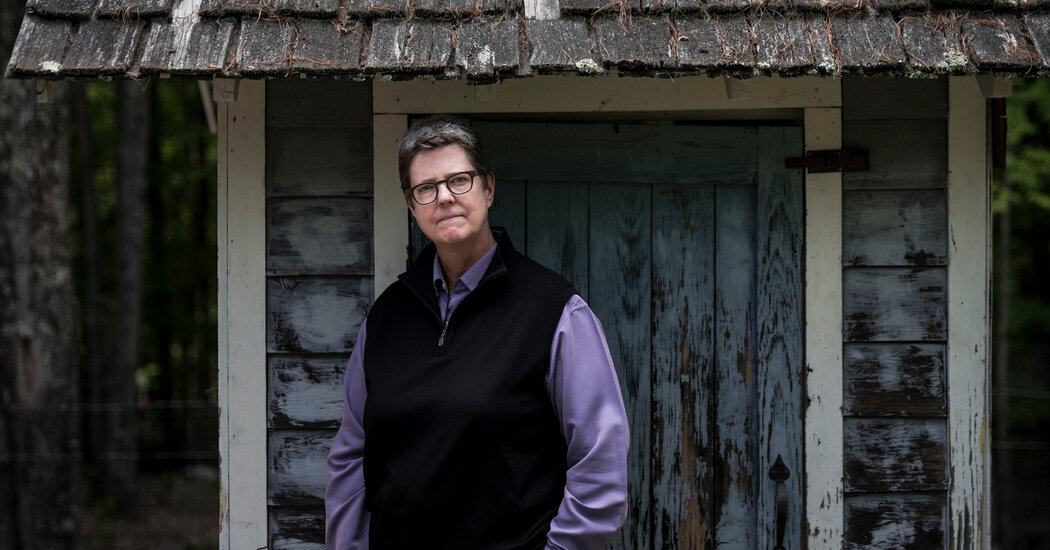Columbia Professor Katherine Franke Says She Was Forced to Retire Because of Activism
Columbia University and one of its longtime law professors, Katherine Franke, have severed ties after an investigation stemming from her advocacy on behalf of pro-Palestinian students.
It was the latest fallout from student and faculty activism related to the Gaza War on a major university campus.
Ms. Franke, a tenured professor known primarily for her work as founder and director of Columbia’s Center for Gender & Sexuality Law, had been an advocate for pro-Palestinian students as protests erupted on the campus last school year.
She was also one of several faculty members investigated by the university over allegations of antisemitism, after the school received complaints about comments she made about Israelis on a radio program.
Describing her departure as a “termination dressed up in more palatable terms,” Ms. Franke said in a statement on Friday that she had reached an agreement with the university to leave, because Columbia had become a “toxic and hostile environment.”
A Columbia University spokeswoman, Samantha Slater, said in a statement that the university was “committed to being a community that is welcoming to all and our policies prohibit discrimination and harassment.”
She added that a complaint had been filed “alleging discriminatory harassment in violation of our policies. An investigation was conducted, and a finding was issued.”
In a statement on Friday, the Center for Constitutional Rights, a nonprofit legal advocacy organization where Ms. Franke previously served on the board, called the end of Ms. Franke’s Columbia career “an egregious attack on both academic freedom and Palestinian rights advocacy.”
The investigation of Ms. Franke involved comments she made on the left-leaning media platform Democracy Now! after an incident in January 2024 on the steps of Columbia’s Low Library.
A smelly substance had been released on pro-Palestinian students during a rally demanding the university divest from Israel. One student who was suspended in connection with the incident — and who subsequently sued the university — was identified as a former member of the Israel Defense Forces.
In the Democracy Now! interview several days later, Ms. Franke said that she and other professors at Columbia had been concerned about Israeli students coming to Columbia “right out of their military service” because they had been known to harass Palestinian and other students on campus.
Two Columbia colleagues filed a complaint against Ms. Franke, saying that her comments amounted to harassment of Israeli members of the Columbia community. An outside law firm hired by the university to investigate the complaint found last November that the remarks violated Equal Opportunity and Affirmative Action policies, which Ms. Franke said she appealed.
The investigator also concluded that Ms. Franke had violated policy by disclosing the name of one of the complainants against her and reposting a social media post that made disparaging comments about him.
During a congressional hearing in April, Dr. Minouche Shafik, then Columbia’s president, was asked by Rep. Elise Stefanik, Republican of New York, what disciplinary actions had been taken against Ms. Franke. Ms. Stefanik misquoted Ms. Franke as having said that “all Israeli students who served in the I.D.F. are dangerous and shouldn’t be on campus.”
During the hearing, Dr. Shafik responded, “I agree with you that those comments are completely unacceptable and discriminatory.”
Dr. Shafik’s remarks during the hearing, about Ms. Franke and others, drew sharp rebukes from faculty members as inappropriate and damaging to her relationship with the faculty.
Dr. Shafik resigned several months later, becoming the third university president who appeared before the congressional committee to leave her job.
In her statement on Friday, Ms. Franke called Dr. Shafik’s remarks during the hearing defamatory. “President Shafik was aware at that time that Congresswoman Stefanik’s summary of my comments was grossly inaccurate and misleading,” Ms. Franke said.
She said the hearing testimony led to death threats against her, as well as other forms of harassment.
After Dr. Shafik’s testimony, she wrote, colleagues had videotaped her without her consent and leaked the videos to right-wing organizations. Students, she said, had gone so far as to enroll in her class to provoke discussions that they could record and post online, then file complaints against her.
“I have also come to regard Columbia University as having lost its commitment to its unique and important mission,” Ms. Franke said in her statement.
Rather than fostering critical debate, research and learning, she said, the university had “demonstrated a willingness to collaborate with the very enemies of our academic mission.”

